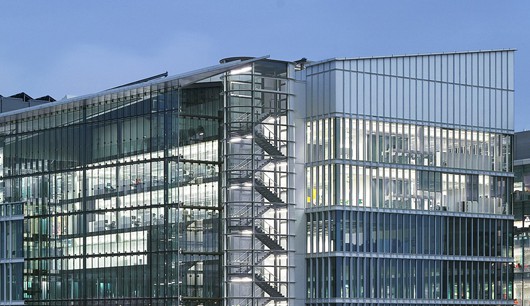
Recently-appointed chief executive at AstraZeneca (AZ), Pascal Soriot, says the company may turn to acquisitions to rebuild its R&D engine and boost productivity as it battles with a weak mid- to late-stage pipeline.
The new CEO was speaking as AstraZeneca reported a 19 per cent fall in third-quarter revenues to $6.68bn thanks to generic competition and divestments, while operating profit plummeted 47 per cent to $2.16bn.
One of the first actions Soriot took on taking over at AZ on October 1 was to halt a share buyback programme, raising speculation that he was freeing up cash for deals.
The CEO was tight-lipped during the call about merger & acquisition (M&A) strategy ahead of completing his ongoing review of the business, but suggested AZ was open to a number of options, both outright company acquisitions and product licensing deals.
“We will look at all options that make sense to create value for this company,” he said, and confirmed that he supports AZ’s tradition of remaining a pharma pure-play, without diversifying into other areas such as generics and consumer health.
“I think we can diversify within our core focus of innovation,” he said.
AZ badly needs to inject some new drugs into its portfolio as it struggles with one of the steepest patent cliffs in the pharma sector.
Loss of patent protection for antipsychotic drug Seroquel IR (quetiapine) in the US was the major drag on its third-quarter results, with sales sliding to $169m from $1.03bn a year ago. Longer-acting Seroquel XR held up better, managing an 8 per cent gain to $373m.
Other drugs hit by competition included antihypertensive Atacand (candesartan), down 34 per cent to $221m, and antibiotic Merrem (meropenem) which came in at $90m, a decline of 29 per cent.
Gastrointestinal drug Nexium (esomeprazole) also slipped 6 per cent to $995m on competition in Europe, while lipid-lowerer Crestor (rosuvastatin) fell 3 per cent to $1.54bn after the launch of generics in Canada.
Among the company’s more positive highlights was the Bristol-Myers Squibb-partnered diabetes franchise, with Onglyza (saxagliptin) growing 42 per cent to $84m, and Byetta (pramlintide) and long-acting Bydureon adding $38m to the pot. AZ shares profits on Byetta and Bydureon with BMS following the latter’s acquisition of Amylin earlier this year.
Meanwhile, the three main growth platforms for the company at the moment are antiplatelet drug Brilinta/Brilique (tiacgrelor), the diabetes collaboration with BMS and a continued push into emerging markets, according to Soriot.
Sales of the new cardiovascular drug have been growing slowly – it brought in $24m this quarter after being launched in the summer of 2011 – but Soriot said he was confident this can be improved.
“We didn’t show our best game with Brilinta, but we are actually taking corrective measures,” he told analysts. “It is the better product in the class, and I think we can do better with this product.”
Soriot said he would be in a position to share more information on strategic priorities at AZ’s annual results meeting in January, 2013.




